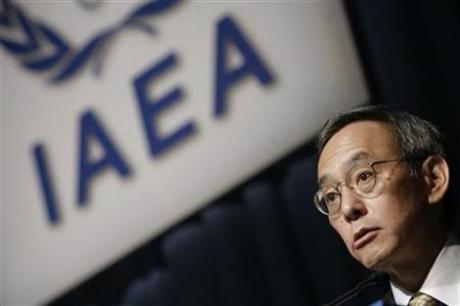Published March 6, 2010 07:46 AM
The nuclear waste issue must be solved

(Reuters) -
U.S. Energy Secretary Steven Chu said on Friday that the United States
needs to come up with a better system for storing or disposing of
radioactive nuclear waste than a planned repository near Las Vegas.
"The president has made it very clear that we are going to go beyond
Yucca mountain. You should go beyond Yucca mountain," Chu said. "But
instead of wringing my hands, let's go forward and do something better."
The Obama administration, in January, announced it was stopping the
license application for a long-planned multi-billion dollar nuclear
waste storage site at Yucca Mountain near Las Vegas, which is opposed by
environmental groups.
The Energy Department formally asked the Nuclear Regulatory Commission
this week to withdraw the application.
Chu said when the waste site was first started, there were conditions
put in the requirements for the repository that didn't really mesh with
what scientists knew even back then.
"Long, long ago, it began looking less and less ideal," he said. "As
time wore on, it's got to be one of those things: 'oops this might have
happen, oops the Supreme Court says this...',"
"Wouldn't it be nice to step back and take a fresh look?" he asked.
The energy secretary said he would like to have the new blue ribbon
panel of experts the administration recently created study the issue of
managing nuclear waste on a long-term basis rather than spend money
building a waste storage facility.
"Yucca mountain was designed at a time when we didn't think we would
start the nuclear industry again," Chu said.
The Yucca mountain storage site, planned about 90 miles from Las Vegas,
has endured years of bureaucratic delays and scientific foul-ups.
Yucca Mountain was designed to store millions of pounds of radioactive
waste from 104 U.S. nuclear power reactors along with tons of leftovers
from the country's nuclear weapons program.
Currently, spent nuclear fuel and high-level radioactive waste are
stored at 121 temporary locations in 39 states across the country.
(Reporting by Poornima Gupta; editing by Carol Bishopric)